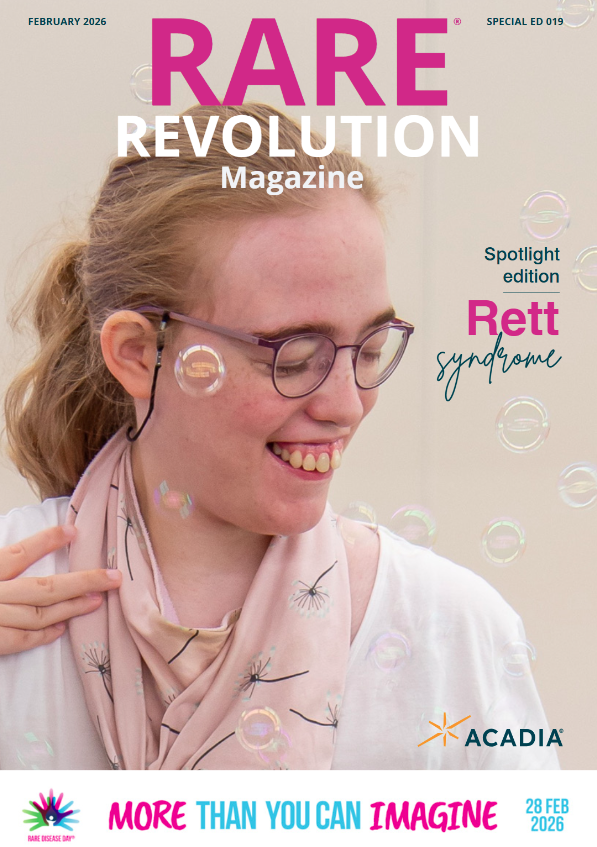Room for improvement: removing uncertainty for the wAIHA community
SPONSORED CONTENT

With no approved treatment for warm autoimmune hemolytic anemia (wAIHA), the door remains open for therapeutic advancements to reduce disease burden for individuals, but that isn’t the whole picture
Written by Nicola Miller
Recently, the lived experiences of individuals living with warm autoimmune hemolytic anemia (wAIHA) have been reported highlighting the substantial burden of disease.
What is wAIHA?
Warm autoimmune hemolytic anemia (wAIHA) is a rare (non-hereditary) autoimmune disorder characterised by premature destruction of healthy red blood cells (hemolysis) resulting in anemia, which can cause symptoms like debilitating fatigue, dizziness, shortness of breath, jaundice and in severe cases, chest pain or loss of consciousness. The individual’s own immune system creates antibodies (typically immunoglobulin G, also known as IgG) that destroys the healthy red blood cells. wAIHA is distinct from other types of AIHA in that, as the ‘warm’ suggests, the antibodies in wAIHA are most destructive at a body temperature of between 36.5-.37.5 degrees Celsius (97.7-99.5 degrees Fahrenheit). https://rarerevolutionmagazine.com/digitalspotlight/the-impact-of-warm-autoimmune-hemolytic-anemia-waiha-a-condition-overview-and-infographic/

A focus on the lived experiences of wAIHA from the patient perspective published online by the American Society of Hematology in the November supplemental issue of Blood sets out the substantial gap in mental health support.
A small sample international patient council, comprising, individuals from the USA, Netherlands and Hungary, (both male and female from diverse backgrounds) showed that the variability of outcomes and uncertainty around permanence of remission greatly impacted emotional wellbeing. Fear surrounding immunocompromised state, particularly, in the wake of the COVID-19 pandemic left individuals deeply concerned that exposure to such infectious diseases could trigger a relapse at any time.
The impact of this on individuals’ mental health is profound and is not always fully recognised by treating physicians. As a result, this aspect of care is being left to fall through the net. The patient council were unanimous in their view that greater focus should be given to mental health by providers. Greater access to resources and strategies such as counselling, medication and peer-to-peer connection and support is also a must. The patient council highlighted the great benefit derived from both the patient and family community, and HCPs in hearing stories from a diverse spread of impacted individuals. Hearing stories that mirror our own circumstances helps us feel less alone in our personal journey and the same is true for those living with wAIHA.

Fatigue is one of the most significant aspects of living with wAIHA for a great many. All individuals involved in the focus groups reported having to modify their working arrangements due to extreme fatigue. Most, having had no previous history of fatigue prior to onset/diagnosis, found this challenging. In addition to the physical toll, individuals felt significant emotional toll associated with attempting to share their experiences and extent of fatigue with loved ones and HCPs.
The insights from the study further supported by the lived experiences shared within this wider disease digital spotlight highlight the significant and often overlooked burden of fatigue and impact on mental health. This leaves significant scope for greater improvement in both therapeutic and more supportive interventions, which, are much needed to address the unmet needs of the wAIHA community in a more holistic and satisfactory way.
To learn more, you can read the report here:
- Insights on the lived experience of warm autoimmune hemolytic anemia (wAIHA) from ongoing patient council: https://doi.org/10.1182/blood-2024-205079
For support in navigating life with wAIHA please visit

Articles within this digital spotlight are for information only and do not form the basis of medical advice. Individuals should always seek the guidance of their medical team before making changes to their treatment.
This digital spotlight has been made possible with financial support from Johnson & Johnson. The content was developed in collaboration with wAIHA Warriors. All opinions are those of the contributor. RARE Revolution Magazine retains all copyright.
CP-485656 | November 2024











